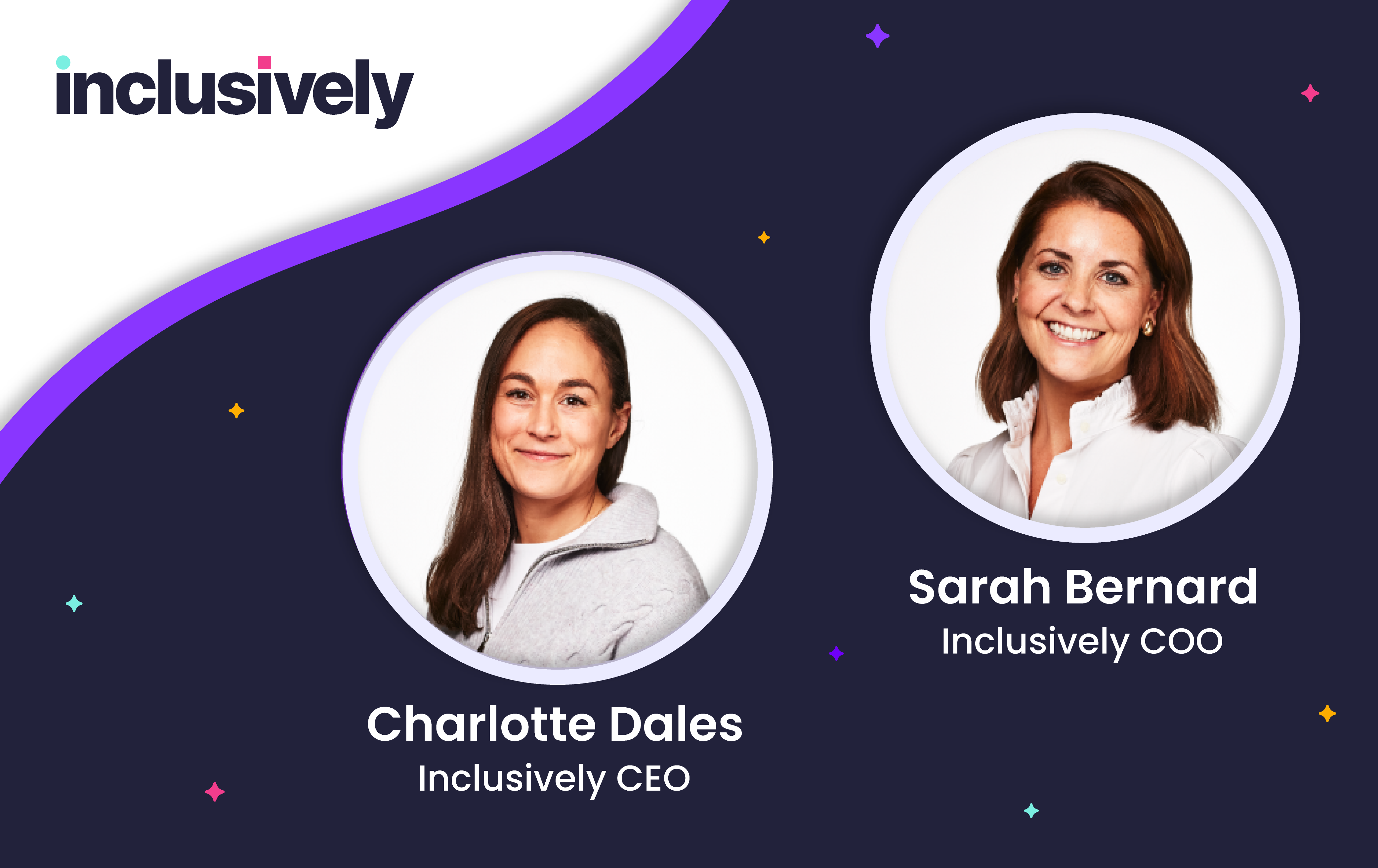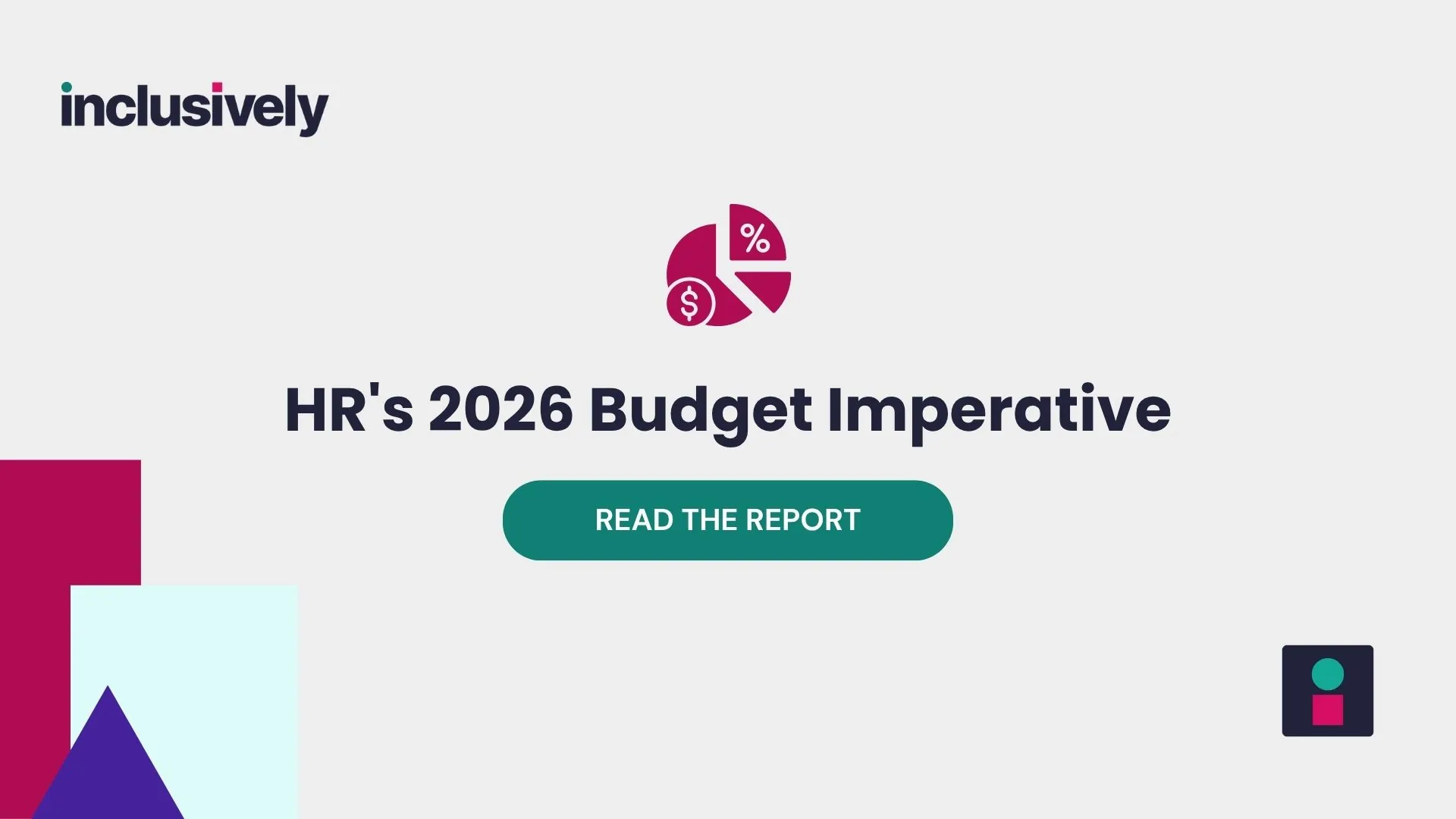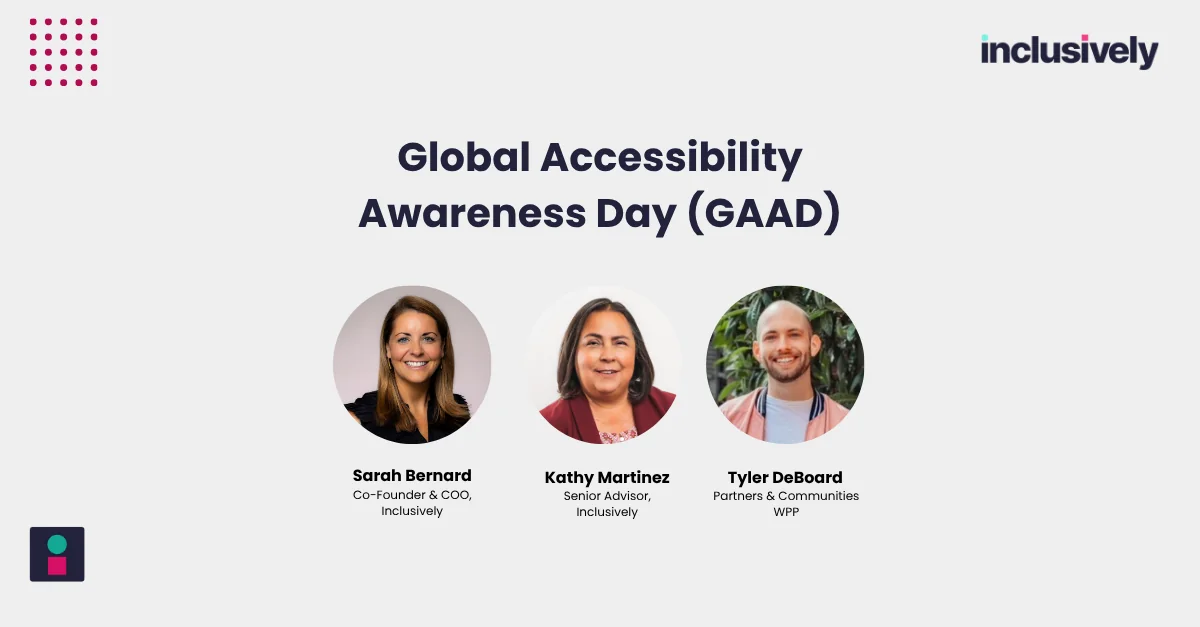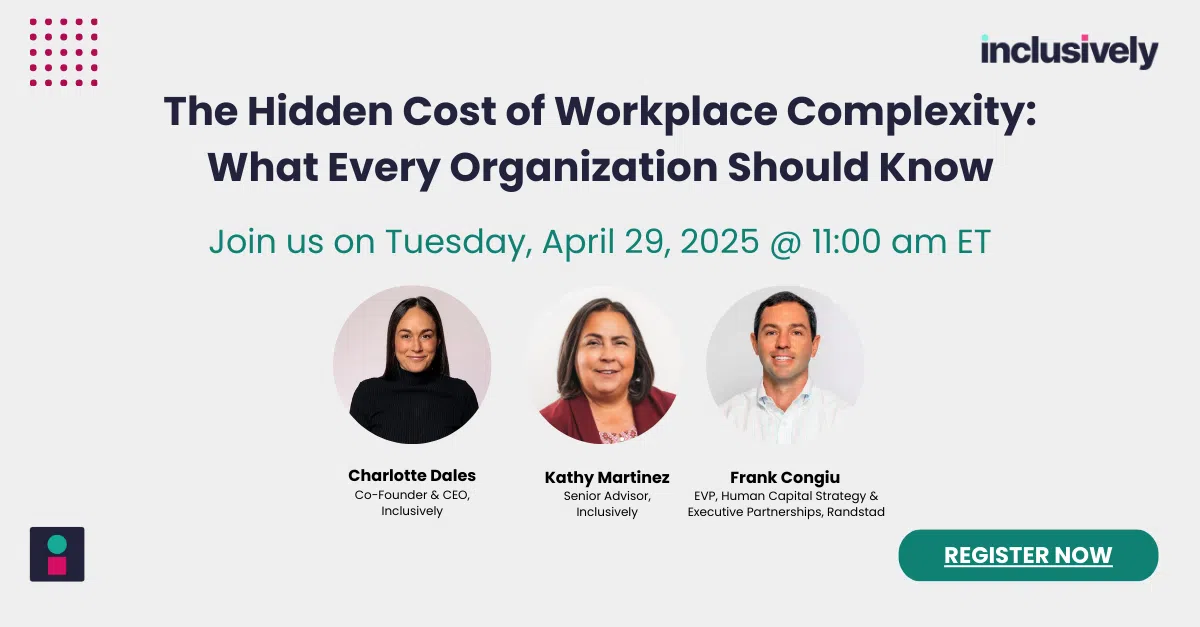Today celebrates two years since Inclusively was co-founded by CEO Charlotte Dales and COO Sarah Bernard and the 32nd Anniversary of the signing of the Americans with Disabilities Act (ADA). We thought we’d check in to see how they’ve experienced the landscape of disability inclusion evolving since they started the company. Below are excerpts from our interview.
Has the mission of Inclusively evolved since its founding two years ago?
Charlotte: You know, we’re pivoting and evolving all the time. That being said, the other day I dug out an old email I sent to the founder of Best Buddies (Anthony Shriver) when I came up with the idea of Inclusively. It was a cold email, but he responded immediately, took a meeting, and is now one of our many incredible Advocates! How I described my vision to him in that email back in 2017 is exactly why I show up to work every day. The “how” has changed but the “why” is the same.
Sarah: Our core mission hasn’t changed, but the more we’ve worked on Inclusively, the more evident it is that Inclusively’s use case supports the disability community and many other historically excluded communities. As we all know, universal design benefits everyone. I’m excited to continue advancing our mission around inclusion and transparency while also seeing the positive effects that universal design can have on employment opportunities for those who may not have a self-disclosed disability but can still benefit tremendously from accommodations and a more personalized approach to employment.
Has the way you think about the problem we’re solving changed?
Sarah: Yes. Like any strong start-up, we’re always fine-tuning our strategy. We’ve led with growth in mind, but we learn from each client, uncovering new roadblocks that prevent hidden talent from being hired and finding solutions that we can embed into scalable technology to have the biggest impact.
Charlotte: When I first started the company, I thought we needed to solve the problem through creating an algorithm that could map people’s ability back to functions that make up the workforce. Once we started, we learned that the real problem that needed solving was on the employers’ side — how to help them open up their processes to be more inclusive and how to accommodate candidates’ unique requests at scale.
On that note: what’s the number one thing limiting companies from becoming more inclusive today?
Charlotte: Fear of change.
Sarah: Agreed. Changing a workflow or process at a large company often takes both commitment and persistence. We’ve found that it usually takes a bold leader to champion the cause, ensure its success, and then amplify early wins to inspire the broader organization to scale things up. In so many cases, we’ve been brought in by one group, and end up scaling to others as word-of-mouth passes within the organizational culture.
What’s the most validating thing you’ve learned about disability inclusion in the last two years?
Sarah: How supportive the disability community has been of our efforts. We’ve faced a lot of challenges and have made mistakes along the way, as every startup does. Every criticism is an opportunity to grow, and it’s really true that Inclusively’s success is a group effort across both our internal team and every Advocate, Employer, Candidate and community member who has taken the time to share their feedback and support.
Charlotte: That it’s not that hard to include people!
What Inclusively accomplishment are you most proud of and why?
Charlotte: This is a hard one. We’re trying to solve a very deep-rooted, systemic problem at a very large scale. I think what I am most proud of is the team we’ve been able to build and how committed they are to the cause.
If I have to pick one moment, it would have to be the other day when I was putting my 3-year-old daughter to bed. I always hug her and tell her never to grow up, and she always says, “No, mommy I want to grow up.” The other night I asked her, “Why?” and she said, “Because I want to help people with disabilities.” I started this company when I was pregnant with her, and I spent all the early days with her sleeping in my lap while I worked. Like any working mom, I battle guilt about the moments I might have missed, but that moment reminded me it’s all worth it!
Sarah: I’m most proud of the amazing team we’ve gathered and their commitment to Inclusively’s mission. We launched Inclusively in the middle of a pandemic, with minimal funding, when corporate hiring was at a complete standstill. And, we’re raising six children between both Charlotte’s family and mine, all under the age of six!
What advice would you give to others who are interested in creating a more inclusive workplace?
Sarah: Start with yourself and then amplify your success stories. Success breeds success!
Charlotte: It can literally take one person to start caring to drive real, meaningful change in an organization. Be THAT person!



